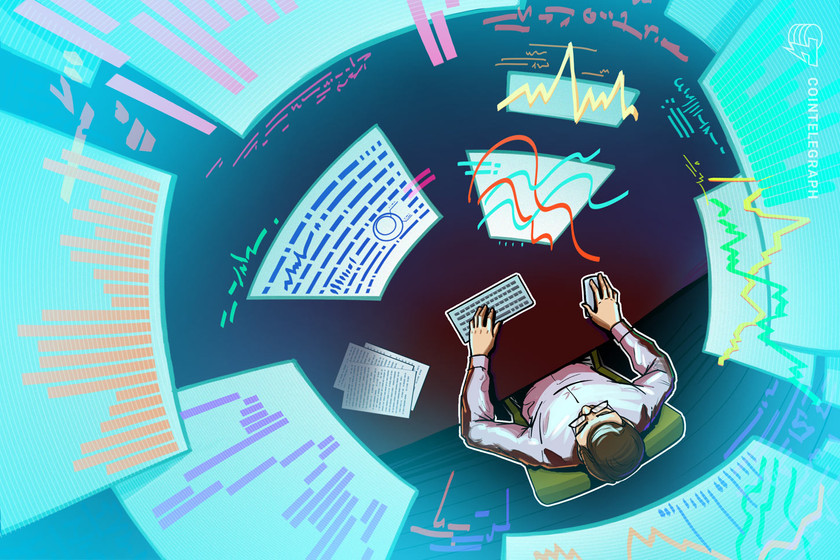COVID-19 — more commonly known as the coronavirus — has unleashed massive shock waves among the worldwide health, science, government and business communities as societies are trying to contain the virus. At the moment, the scale and velocity at which the coronavirus is spreading are proving difficult to manage because the regional clustering of the outbreak has moved beyond the initial Hubei province of China to South Korea, Iran, Europe and parts of North America.

Economic impact
The coronavirus is not the first serious epidemic that has claimed hundreds of lives and caused enormous economic losses to the global economy. In 2002, when the SARS epidemic began in China, officials and the general population did not immediately sound the alarm and were reluctant to share information with the international health community. Consequently, there were around 8,000 cases of the virus reported worldwide, and more than 750 people died as a result.
The Chinese government claimed that it had taken all the necessary measures to neutralize and contain the virus but did not immediately announce official statistics on those infected and deceased. The impact was widespread as the country’s economy lost 2–3% of its annual real GDP growth, total sales of goods and services fell by 5%, and industrial production fell by 6% — these are just some of the negative effects of the epidemic.

This new coronavirus is no different — only its scale and economic consequences are more severe than the 2002 SARS outbreak. Cases of infections have been detected in more than 20 countries, and many of them, such as the United States, Singapore, Japan and Thailand have cut off air travel with China in an attempt to contain the spread.
The economic consequences are still difficult to calculate, but some facts can already be noted: Air France–KLM has disclosed that it had already suffered $200 million in losses due to the virus and that the airline industry had lost about $1 billion in total. Kia Motors has closed all its manufacturing plants in South Korea; Apple has also joined in by suspending stores and factories in China, and New York has announced that it’s spending about $1 million a day fighting the disease. Global commodity markets also shuddered, with the price of oil falling to a record low of $54 per barrel over fears of declining resource consumption in Asian markets.
Blockchain in action
Certain stumbling blocks of past epidemics have still not been solved. While it’s unrealistic to expect any country to ever be fully prepared for an event of this magnitude, there are some areas that can be improved through the implementation of interoperable blockchain solutions.
Tech companies and startups in the industry have recognized this and started to build a number of blockchain solutions aiming to track drug supply chains, medical supplies, managing medical data, advising citizens and identifying symptoms of infection.
Donation tracking
Trust has been a major issue throughout the early months of the coronavirus outbreak. Viral images and videos of donated supplies being taken by non-medical personnel have caused an outrage on social media, with many hospitals in affected areas still pleading for more donations.
China’s Red Cross has a questionable reputation marred by previous scandals, causing citizens to reconsider their willingness to donate. In response, Hangzhou-based blockchain startup Hyperchain developed a donation-tracking platform that has already attracted $2 million in donations.
Donors can see where funds are most urgently needed and then track their donations until they are provided with a verification that their donations have been received. Existing donors include New Sunshine Charity Foundation and Yuegou Living Supermarket, while donation recipients include Tangshan People’s Hospital, Jiayu People’s Hospital and Xiantao No. 1 People’s Hospital in Hubei province — all of which are treating people infected with the coronavirus.
Insurance claims
Ant Financial’s collective insurance company Xianghubao is a blockchain-based collective claim-sharing platform with over 104 million users. One of the newest functions is to process coronavirus claims, helping the firm to reduce paperwork and the need for back-and-forth document delivery to clinics.
There is another advantage of blockchain as well: to mitigate the risk of infection from face-to-face contact, as the platform is able to process transactions without human involvement. The platform has managed to process over 1,000 claims worth an average of $14,000 each.
Medical materials supply chain tracking
Alipay, along with the Zhejiang Provincial Health Commission and the Economy and Information Technology Department, has launched a blockchain-based platform that enables users to trace the demand and the supply chains of medical supplies. This included the recording and tracking of epidemic prevention materials, such as masks, gloves and other protective gear.
The shortage of facial masks has been one of the biggest challenges in China so far, with the National Development and Reform Commission, China’s top economic planning commission, being tasked with managing the supply. According to the NDRC, daily production is around 15.2 million masks per day, with demand estimated to be between 50 and 60 million units.
This dramatic gap between supply and demand has led to a sharp rise in counterfeit production, with 1,560 arrests and 31 million fake face masks already seized in 688 cases in China so far. While it is probably too late to implement major changes, the coronavirus has proven that the medical supply chain remains an area with a legitimate need for blockchain provenance solutions.
Around the world, steady progress is being made to increase the connectivity of health care infrastructure. Last year in the U.S., the Food and Drug Administration approved a multi-state pilot to use blockchain technology to track medication shipments and usage in North Carolina, Indiana and Tennessee. The goal was to improve supply chain monitoring and quality control while providing data for more targeted inventory and recall management.
The project is managed by South Carolina-based Rymedi, a health care blockchain company partnered with Kadena, one of the inaugural companies from JPMorgan Chase’s Blockchain Center of Excellence.
Outbreak data tracking
Acoer provides health care and life sciences institutes with blockchain solutions to easily track the virus and visualize how it is spreading around the world using an app called HashLog. The coronavirus HashLog dashboard allows researchers, scientists and journalists to easily understand and follow the spread of the virus, as well as its trends over time from a wide set of public data including data from the Center for Disease Control and the World Health Organization. The platform’s blockchain technology ensures that every piece of shared information cannot be manipulated or changed.
Cross-border payments
Another challenge for charities, governments and health organizations during large-scale disasters is the distribution of cross-border donations and payments. When the United Nations World Food Program introduced blockchain technology for projects, such as distributing aid to vendors in Jordan, arranging money transfers for more than 10,000 Syrian refugees, and auditing beneficiary spending, it managed to reduce bank transfer fees by almost 98%. This would mean that multinational non-profit organizations could save tens of millions of dollars that could be allocated to aid projects instead.
Fulfilling the potential
Society is now facing an uphill battle to limit the outbreak’s ramifications — which can provide blockchain technology with a golden opportunity to make a considerable impact. Below are some steps that can be implemented immediately:
- Multinational health organizations should implement a blockchain-based platform that will connect local hospitals and health organizations in potential zones into which the virus may spread.
- Local hospitals will be able to record medical data about patients who show flu- or virus-like symptoms in the form of a public ID (patients will remain non-identifiable).
- This data will be further tracked by the health organizations in order to predict the spread of the virus based on the state of patients’ medical statistics.
- Countries will be able to strengthen their preventive measures in the areas where the virus can potentially spread — e.g., increasing the workforce of medical staff, providing medical supplies.
In addition, testing passengers for symptoms of the virus who travel from countries that have already declared a state of emergency would be another method to receive data for high-risk groups. These passengers will be obligated to visit medical institutions in order to be tested and tracked as mentioned above.
Blockchain systems should extend far beyond monitoring health care data. Many of the deadliest flu outbreaks have come from mistreating livestock. In fact, the world is still battling with the aftermath of the devastating African swine flu outbreak that has wiped out about a quarter of the global pig population.
More organized tracking systems are needed to identify livestock and trace an outbreak before it becomes unmanageable. Besides its obvious use as a traceability tool, blockchain technology could form a link among insurance companies, government compensation and farmers, allowing preventative measures along the supply chain to be more decisive. Testing and certification could also be linked, giving farmers, health officials and machine learning algorithms accurate data to better understand the risk-level from region to region.
When an outbreak occurs, sharp acumen and a quick reaction are the most important weapons authorities have to oust the problem. It’s not outlandish to suggest that during this current coronavirus epidemic, thousands of lives could have been spared and billions of dollars in current and future economic losses saved.
Further improvements toward medical supply chain management, product and vaccine verification, tracking donations, food safety and insurance processing can better support the global community in its fight against viral containment, making blockchain technology a vital addition in the upcoming decade.









